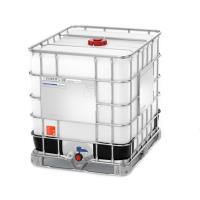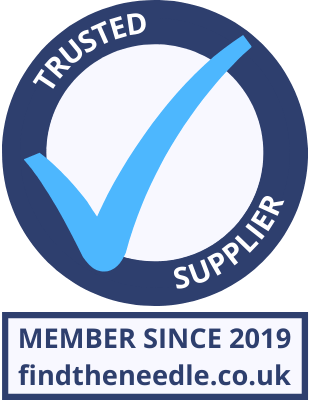 Add My Company
Add My Company
Sign In
What is an IBC?
04-06-2020

What is an IBC?
03 JUNE 2020
IBC is an acronym for intermediate bulk container, a large, reusable container used for storage or transport of industrial goods.
Versatile IBCs have a long list of potential uses, from carrying chemicals to storing sand, and they’re a popular choice across a range of sectors.
They’re safe, durable, reusable and cost-effective.
Here, we take a detailed look at what intermediate bulk containers are, what they do, and why you might need one for your business.
WHAT IS AN IBC?
Intermediate bulk containers, otherwise known as IBCs, are industrial-strength containers used to store or transport a variety of liquids and solids.
They’re designed to store products in large quantities, providing a safe and durable way to move them around.
An IBC can be constructed from a variety of materials and they’re available in a range of sizes to suit multiple capacities.
In addition, they can be complemented with a choice of accessories to make them more suitable for particular tasks, such as carrying of hazardous chemicals.
IBCs can be pallet-mounted, making them perfect for warehouse storage, while they ordinarily have a tap at the bottom to allow easy access to the liquids or semi-solids stored inside.
As they are termed ‘intermediate’ containers, an IBC is generally able to hold up to 1,000 litres in capacity.
WHAT ARE IBCS USED FOR?
One of the great things about intermediate bulk containers is how versatile they are.
The most common uses are transport and storage of liquids, semi-solids and powders.
They’re occasionally used for solids too, though they’re less suited for this task.
Common products that are stored or transported in an IBC include:
Chemicals
Pharmaceuticals
Sand
Food (spices, powdered goods)
Solvents
Other liquids
They can potentially store and move around many other types of product as well.
Another benefit of intermediate bulk containers is that they’re totally reusable.
ARE THERE DIFFERENT TYPES OF IBCS?
There are several different types of intermediate bulk containers on the market, each suited to particular tasks or the transport and storage of particular materials.
The most prominent designs are classified as rigid or flexible.
A rigid IBC is solid and sturdy, covered in a rigid frame that allows it to be moved by a forklift while staying protected.
A flexible IBC is much more malleable and not as rigid.
It offers less protection, but potentially more versatility.
Flexible IBCs can be packed down and folded away, whereas rigid ones cannot.
Flexible IBCs can be more affordable but will be suited to fewer tasks, especially when it comes to transport.
WHICH TYPE DO I NEED?
The type of intermediate bulk container you need depends on what you want to store and whether it needs to be transported.
If you’re carrying hazardous materials, then you’ll need a rigid IBC for safety.
Most liquids are better suited to rigid IBCs too.
If you’re moving non-hazardous materials or substances, such as sand or powder, then flexible IBCs are usually the best option.
You need less protection for these materials, and a flexible IBC will be easier to store and transport because it folds down and compresses.
WHAT ARE IBCS MADE FROM?
Intermediate bulk containers are made from a variety of materials that offer both strength and versatility.
Rigid IBCs are made from industrial-strength plastic that’s designed to store hazardous chemicals, such as polyethylene, or for higher strength IBCs, high-density polyethylene.
The rigid metal frame is made from galvanised steel, while the pallet mount on the bottom is also made from quality steel.
Rigid IBCs have a butterfly tap mounted for easy use.
Flexible IBCs are also made from plastics such as polyethylene.
However, rather than being solid plastic, they are constructed from woven plastic.
DO I NEED AN IBC COVER?
An IBC cover is a great way to add extra protection to your intermediate bulk container.
Covers can provide added protection from dust or from the outside elements if you’re storing goods outside.
IBC covers are affordable and versatile.
Popular covers include waterproof tarpaulins or insulation jackets to keep substances temperature-controlled.
HOW DO I CLEAN MY IBC
Intermediate bulk containers are reusable, but they need to be cleaned out after each use, especially if different materials are being stored inside them.
The cleaning process depends on what substance has been held in the container, and a different approach is needed for hazardous chemicals in comparison to powdered food goods.
You can use different detergents, but will need to check if they’re compatible with other chemicals that have been stored in the container.
If in doubt, call an IBC cleaning professional.
To find out more about our fantastic range of intermediate bulk containers, or to place an order for an IBC, contact ITP Packaging today.
For more information on What is an IBC? talk to ITP Packaging Ltd
Enquire Now
List your company on FindTheNeedle.

